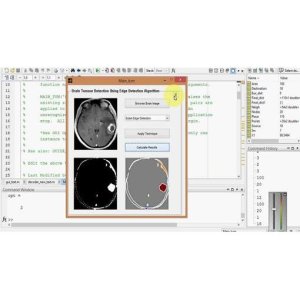MuRIS: Incentive-Based Data Sharing in Delay Tolerant Mobile Networks
Problem Definition
Problem Description: In Delay Tolerant Mobile Networks, where opportunistic peer-to-peer links are used for sharing data between mobile devices, there is a lack of efficient data dissemination schemes. Current methods do not effectively utilize the limited resources available on mobile devices, leading to slow and inefficient data sharing processes. Additionally, the lack of incentives for nodes to cooperate in sharing data can result in security vulnerabilities such as edge insertion attacks. Therefore, there is a need for a new technique that not only reduces the number of transmissions required for data sharing but also incentivizes nodes to collaborate for improved efficiency and security in data dissemination.
Proposed Work
The proposed work titled "Incentive Based Data Sharing in Delay Tolerant Mobile Networks" focuses on addressing the challenges of data sharing in mobile devices through opportunistic peer-to-peer links in Delay Tolerant Networks. The project introduces a new technique called Multi-Receiver Incentive-Based Dissemination (MuRIS) scheme which minimizes the number of transmissions required for data delivery between nodes. By incorporating charge and rewarding functions within the scheme, cooperation among nodes is encouraged, reducing the likelihood of edge insertion attacks. This technique creates efficient multicast trees for data delivery, resulting in faster and more efficient sharing of data among mobile devices. The project falls under the categories of NS2 Based Thesis Projects and Wireless Research Based Projects, specifically within the subcategory of Mobile Computing Thesis.
The software used for this project includes NS2 for simulation and analysis.
Application Area for Industry
The proposed project "Incentive Based Data Sharing in Delay Tolerant Mobile Networks" can be applied in various industrial sectors such as logistics and transportation, healthcare, and disaster management. In the logistics and transportation sector, where data sharing among mobile devices is crucial for tracking goods and vehicles, the MuRIS scheme can enhance the efficiency of communication and collaboration between nodes, leading to better supply chain management. In the healthcare industry, this project's solutions can improve the dissemination of patient data and medical information between healthcare professionals, enabling faster decision-making and treatment. Additionally, in disaster management scenarios, where communication networks may be disrupted, the MuRIS scheme can facilitate efficient data sharing among emergency responders to coordinate rescue operations effectively.
The challenges that these industries face, such as slow and inefficient data sharing processes, lack of collaboration among nodes, and security vulnerabilities, can be addressed by implementing the proposed solutions of the project.
By minimizing the number of transmissions required for data delivery, incentivizing nodes to cooperate through charge and rewarding functions, and creating efficient multicast trees for data dissemination, the project offers benefits such as faster and more efficient sharing of data, improved security against edge insertion attacks, and enhanced collaboration among nodes. Overall, the project's proposed techniques can revolutionize data sharing in various industrial domains, leading to increased productivity, enhanced communication, and better decision-making processes.
Application Area for Academics
The proposed project on "Incentive Based Data Sharing in Delay Tolerant Mobile Networks" holds significant relevance for MTech and PhD students conducting research in the field of Mobile Computing and Wireless Networks. This project offers an innovative approach to addressing the challenges of data dissemination in Delay Tolerant Networks, particularly focusing on incentivizing nodes to collaborate for more efficient and secure data sharing. MTech and PhD scholars can utilize the proposed MuRIS scheme for conducting simulations, data analysis, and research experiments in their dissertations, thesis, or research papers. By leveraging the code and literature of this project, researchers can explore new avenues for improving data sharing processes in mobile devices, while also enhancing security measures against edge insertion attacks. This project not only enhances the knowledge and skills of students in the field of Mobile Computing but also contributes to the advancement of innovative research methods in Wireless Networks.
The future scope of this project includes further refinement of the MuRIS scheme and its application in real-world scenarios, making it a valuable resource for researchers seeking to push the boundaries of mobile data dissemination technologies.
Keywords
Delay Tolerant Mobile Networks, opportunistic peer-to-peer links, efficient data dissemination schemes, limited resources, mobile devices, data sharing processes, incentives for nodes, security vulnerabilities, edge insertion attacks, transmissions, collaboration, efficiency, security, data dissemination, Multi-Receiver Incentive-Based Dissemination (MuRIS) scheme, charge and rewarding functions, cooperation, multicast trees, data delivery, NS2 Based Thesis Projects, Wireless Research Based Projects, Mobile Computing Thesis, NS2, simulation, analysis
| Shipping Cost |
|
No reviews found!



















































No comments found for this product. Be the first to comment!